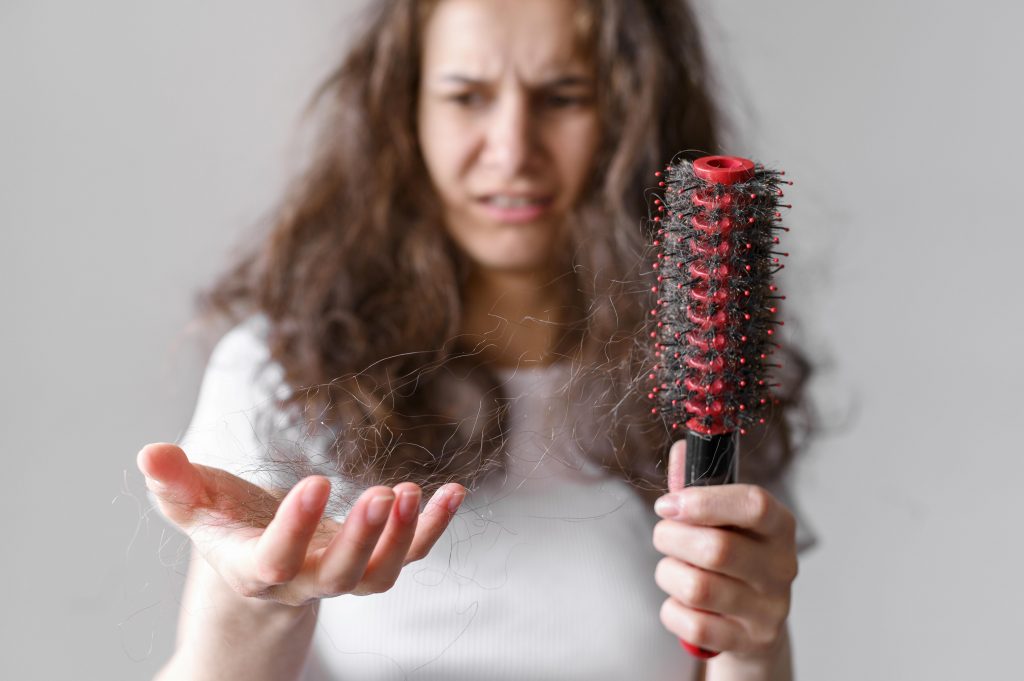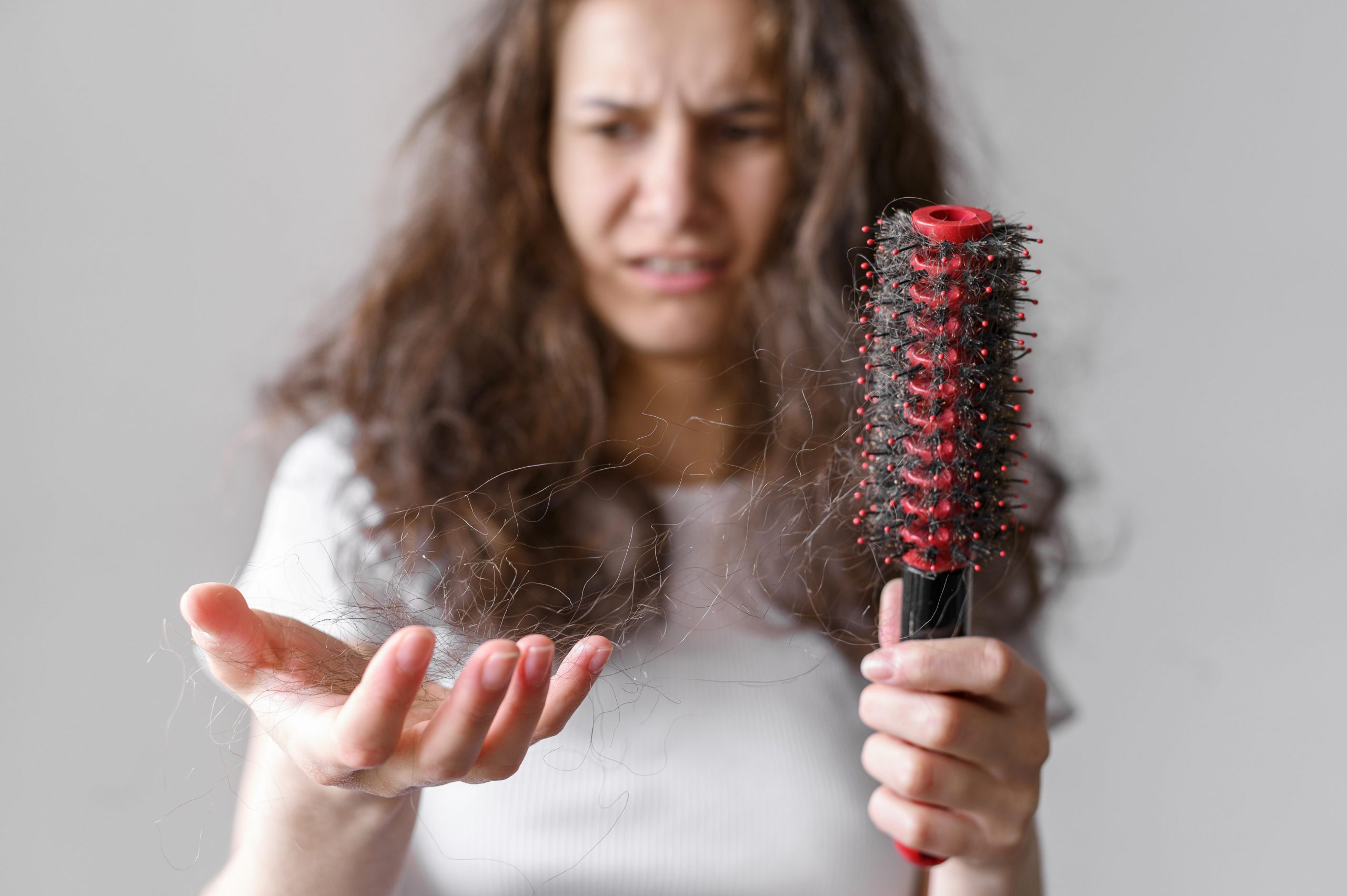Alopecia Areata is the scientific name of hair loss. It is considered a common disease, but despite many people suffering from it, it is still a taboo.
Some people who have alopecia are interested in looking for treatment, but sometimes feel ashamed of it and don’t even talk about it. This should not happen because in many cases a medical diagnosis is essential.
In this article you will get to know more about alopecia: why it happens, how to avoid it and how to deal and treat this problem and when to seek for medical help.

Why hair loss happens
Hair loss is a multifactorial problem. This means that it doesn’t happen for one reason only: many things can cause it. Getting to know some of these reasons might help you to find a possible way to solve it.
[1]https://www.aad.org/public/diseases/hair-loss/causes/18-causes
Genetics

The tendency to lose hair because of genetics is something known when it comes to men. But, it can also happen to women – of course, in this case the incidence is lower. The hereditary disposition to hair loss is diagnosable and the sooner the diagnosis is made, the better the treatment results.
Hormonal imbalance
Excessive levels of stress, diseases or even childbirth can cause hair loss. What do all these things have in common? They all can cause hormonal imbalances, which stimulates hair loss. It is important to highlight that medical help and diagnosis is needed and the treatment must vary according to which one of these difficulties you are experiencing.
Hair chemical treatments
The excessive and reckless use of hair chemicals can cause the opposite effect of the desired: instead of beautiful hair, it can get damaged or even face more serious problems – like hair loss.
To avoid that , invest in non aggressive and high quality treatments. Also, respecting the minimal recommended interval between your chemical treatments is essential too.
Symptoms

Unlike many people think, hair loss can manifest in different ways. Depending on the reason for your hair loss, you will have different manifestations. Discover some of them:
Hair Thinning
It is frequently related to genetics and/or age and is especially common in men. It usually begins to affect the hairline on the forehead.
Full body hair loss
Frequently happens due to the exposure to strong medication and other medical treatments. Chemotherapy is known for having this as a side effect.
Circular or punctual bald spots
In some cases, people can lose hair in punctual spots of the scalp. These bald spots often look circular. It is usually related to Alopecia Barbae condition, but the diagnosis and treatment must be done by a doctor.
Sudden hair loss
If you didn’t suffer from hair loss before but all of a sudden started facing this issue, your body can be reacting to high levels of stress. That usually happens after an emotional or physical shock.
[2]https://www.mayoclinic.org/diseases-conditions/hair-loss/symptoms-causes/syc-20372926
Should I look for a doctor?
If your hair loss is not something punctual, but persistent, you should see a doctor. It is also the best option if you want to pursue an effective treatment, since the most accurate diagnosis is made by them.
Is regrowth possible?
There is no right answer. It really depends on each case and if your hair follicles were damaged or not. Basically, if your hair follicle is healthy, regrowth is possible. If a hair follicle is damaged, hair can not grow from that follicle again.
Is prevention possible?
It also depends on each case and on the reason behind it. Hair loss caused by genetics, for example, is not preventable. But when it comes to other factors, some habits might be helpful.
Such as:
- Protecting your strands and scalp from sunlight and UV radiation. Wear hats and caps to protect the scalp and use leave-ins and other hair products with UV filter.
- Take care of your diet. To have strong hair, it is important to keep a healthy and balanced diet. If you already do this but the hair loss is persistent, ask your doctor about medication and supplements to strengthen hair.
- Quit smoking. Some studies associate smoking to baldness in men.
- Brush your hair gently. Brushing too aggressively pulls the hair and can aggravate hair loss. Invest in a gentle brush and in leave-ins that help detangle.
Did you like the article? Share with your friends and follow us on social media!
References
